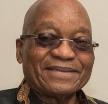High Court: Both Zuma and NPA 'complicit' in long corruption trial delays
11 October 2019
The National Prosecuting Authority (NPA) and former president Jacob Zuma are equally complicit in causing a near eight-year delay in bringing the serious fraud and corruption charges against Zuma to court, according to a full bench of the KwaZulu-Natal High Court in Pietermaritzburg.
The court handed down judgment on Friday in an application Zuma and his co-accused, French arms dealer Thales, lodged for a permanent stay of the prosecution in May this year.
On Friday, judges Thoba Poyo-Dlwati, Bhekisisa Mnguni and Esther Steyn dismissed the application with costs.
For more than a decade, Zuma had been facing 18 charges of fraud, corruption, money laundering and racketeering, relating to 783 payments totalling over R4m, which his former financial adviser Schabir Shaik paid to him between 1996 and 2002.
Shaik was found guilty of fraud in 2005.
The stay application was Zuma's latest attempt to get the charges against him stamped out.
Zuma argued that his prosecution was nothing but a sophisticated political plot designed to tarnish his name with the brush of corruption. He also told the court his constitutional rights to a fair and speedy trial had been violated as a result of the undue delays.
But the court did not agree.
"As the NPA and Mr Zuma formed common cause in opposing the DA review application, the whole period between April 2009 and October 2017 cannot be termed as unreasonable as they were both complicit in their actions," the judgment reads.
To support this argument of political plots, Zuma pointed to the spy tapes and the motivations of former Scorpions boss Leonard McCarthy who was secretly recorded speaking of his intention to serve the indictment on Zuma after the ANC's 2007 Polokwane conference.
Again, the court did not find this to be credible support for his argument.
"Timing of the service of the indictment does not impact on the strength of the State's case against Mr Zuma and the prosecution of the case."
The court also highlighted a previous Supreme Court of Appeal judgment in which it was held that McCarthy's alleged motive in relation to the timing of the indictment, was ultimately irrelevant.
Zuma used the decision of former National Director of Public Prosecutions (NDPP) Mokotedi Mpshe to withdraw the charges against Zuma in April 2009 to further prop up his version of political plots.
At a well-publicised press conference, Mpshe made the announcement that the basis of the withdrawal was McCarthy's ulterior political motives which had irremediably affected the prosecution.
Zuma's counsel argued that this was the "clearest indication that the NPA itself has acknowledged that its conduct, through McCarthy, constituted an egregious violation of the Constitution, the NPA Act and the prosecution policy".
In the judgment, however, it was pointed out that Zuma's counsel - during an appeal of a DA review before the SCA - had conceded that Mpshe's decision to withdraw the charges was irrational.
"In our view, no case has been made before us that Mpshe's decision to initially charge Mr Zuma was in any way politically motivated. Accordingly, the decision of the SCA in the DA review application [declaring Mpshe's 2009 withdrawal irrational] paved the way for Mr Zuma to have his day in court, something which he is alleged to have expressed [a desire for]."
"The seriousness of the offences that Mr Zuma is facing outweighs any prejudice which he claims he will suffer if the trial proceeds. Furthermore, the reputational harm which he claims to have suffered, goes hand in hand with being charged. In any event, this does not seem to have prevented him from ascending to the highest office in the country, being president of the republic," the judgment continued.
"It has not been shown before us that there are no reasonable and probable grounds for prosecuting Mr Zuma."
The court noted as important the challenges Zuma made against the prosecution had never been aimed at the merits of the case against him.
"The same can be said for Thales," the court found.
Thales, argued that it felt the decision by former NDPP Shaun Abrahams to also reinstitute charges against it was irrational and unlawful.
The court disagreed, however, pointing out in detail that Abrahams had fully considered every aspect of the Thales case before authorising the charges.
In a statement, Thales said it noted the judgment and was considering its next steps.
The trial has been set down to start for October 15. However, at the time of writing, it was not clear whether Zuma or Thales would seek leave to appeal.

